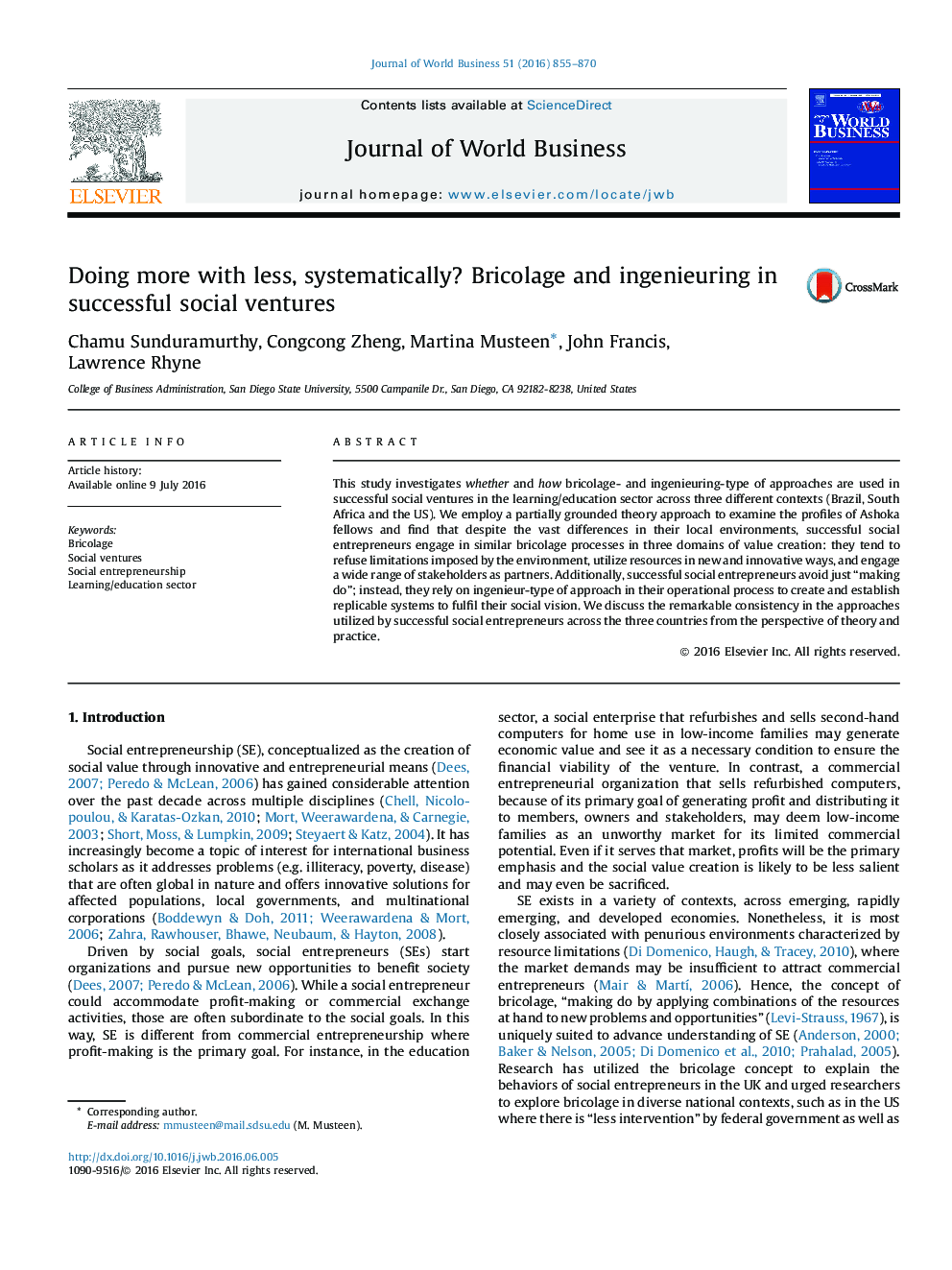| Article ID | Journal | Published Year | Pages | File Type |
|---|---|---|---|---|
| 5107208 | Journal of World Business | 2016 | 16 Pages |
Abstract
This study investigates whether and how bricolage- and ingenieuring-type of approaches are used in successful social ventures in the learning/education sector across three different contexts (Brazil, South Africa and the US). We employ a partially grounded theory approach to examine the profiles of Ashoka fellows and find that despite the vast differences in their local environments, successful social entrepreneurs engage in similar bricolage processes in three domains of value creation: they tend to refuse limitations imposed by the environment, utilize resources in new and innovative ways, and engage a wide range of stakeholders as partners. Additionally, successful social entrepreneurs avoid just “making do”; instead, they rely on ingenieur-type of approach in their operational process to create and establish replicable systems to fulfil their social vision. We discuss the remarkable consistency in the approaches utilized by successful social entrepreneurs across the three countries from the perspective of theory and practice.
Keywords
Related Topics
Social Sciences and Humanities
Business, Management and Accounting
Business and International Management
Authors
Chamu Sunduramurthy, Congcong Zheng, Martina Musteen, John Francis, Lawrence Rhyne,
